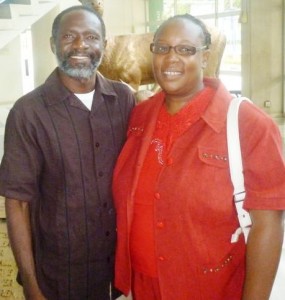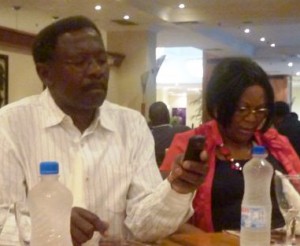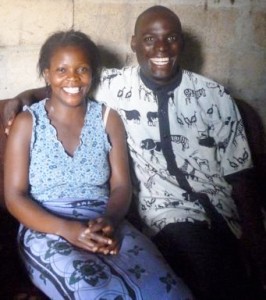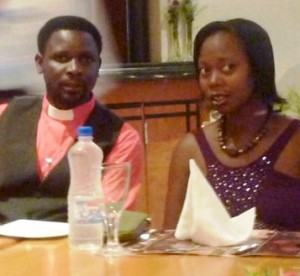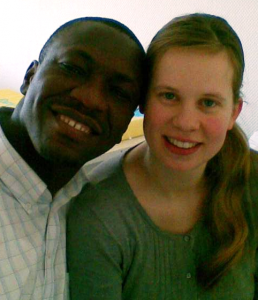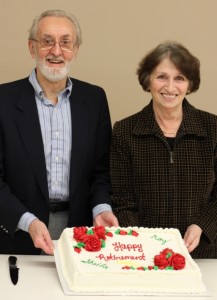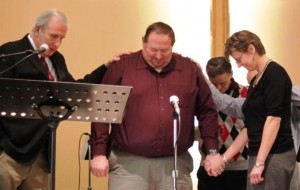Dear brothers and sisters in Christ,
 February is Black History month in the USA, in which we acknowledge the contribution that African-Americans have made to this country (a similar celebration is held this month in Canada). For example, the recently released movie Red Tails tells a little known story of African-American aviators who were a part of “the Greatest Generation” and helped defeat the enemies of democratic freedom in the Second World War.
February is Black History month in the USA, in which we acknowledge the contribution that African-Americans have made to this country (a similar celebration is held this month in Canada). For example, the recently released movie Red Tails tells a little known story of African-American aviators who were a part of “the Greatest Generation” and helped defeat the enemies of democratic freedom in the Second World War.
Some people in other parts of the world may wonder why America devotes a month to recognizing the achievements of just one segment of our population. However, the contribution of African-Americans to this nation has not always been acknowledged. In fact, for a long time it was quite the opposite.
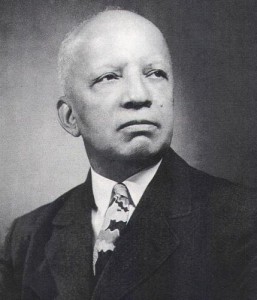
We owe the celebration of Black History Month, and the study of black history, to Dr. Carter G. Woodson. Carter Woodson was born to parents who were former slaves. He spent his childhood working in the Kentucky coal mines and enrolled in high school at age 20. He later went on to earn a Ph.D. from Harvard. Dr. Woodson was disturbed to find that history books largely ignored the black American population. If they were acknowledged it was generally in ways that reflected their inferior social position. Woodson set out to set the record straight. His work influenced the young Martin Luther King.
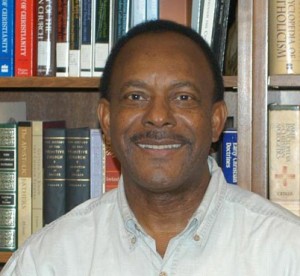
The awful stain on our nation’s history that was slavery is now in our past, but the effects linger on. It is only in my lifetime that some of the most glaring injustices have been addressed. One of my close friends and colleagues, Curtis May, who is just a little older than I am, spent his early years in Alabama. He experienced the prejudice, humiliation and indignity of segregation. Curtis now heads up The Office of Reconciliation and Spiritual Mediation. This ministry (online at http://atimetoreconcile.org/) is steadily gaining respect and recognition as it seeks to promote forgiveness and understanding wherever there is need of reconciliation and healing.
When I consider this aspect of our past, it leaves me asking how we, a people who sing proudly about “The land of the free and the home of the brave,” and who pledge allegiance to a republic that promises “Liberty and Justice for all” could have allowed ourselves in the past to be so blind, so prejudiced and so stupid. Advocates of slavery and segregation even used the Bible to support their arguments. Could anything be more contrary to the “ministry of reconciliation” (2 Corinthians 5:18)?
However, the problem of racism (and the related problem of ethnic prejudice) is not limited to one nation and is not just a black/white problem. Black History Month reminds us that people everywhere are capable of inhuman behavior. Remember Auschwitz, Kosovo, Cambodia, Darfur and Rwanda, to name just a few atrocities in our time. These are signs of the fallenness of all humanity.
Christianity and racism are incompatible. We must work to not just overcome racism, personally, but eventually to obliterate it through our message and example of love and reconciliation. Our own denomination has had to grow in this. We owe a great debt to our pioneer African-American elders, like the late Harold Jackson and Stanley Bass, and also Abner Washington, Maceo Hampton, Leslie Schmedes and Franklin Guice who, though well up in years, continue to make substantial contributions to the life of our denomination. The patience, humility and courage of these men and their families, and many like them, have helped GCI grow in understanding of the evils of racism and ethnic prejudice. I am deeply grateful for the unique contribution my African-American brothers and sisters have made, and are making, to our denomination.
As Acts 17:26 reminds us, “from one blood [God] made the whole world of humanity” (Aramaic Bible translation). We are one people with a common need for forgiveness and salvation. Thank God that we have one Savior and, therefore, a common destiny. God values us all and Jesus paid the same price for each of us. That leaves no room for prejudice, segregation or discrimination of any kind.
So, as we are reminded this month of the significant contributions and the unique sufferings of our African-American neighbors, let me encourage you to take some time getting to know more of that history. Let us pray for the eradication of the lingering injustices still found in our nations. Let us thank God for the ministry of reconciliation our Lord Jesus has given us. And let us look for opportunities to extend that ministry in the power of the Spirit to those within our fellowship and beyond.
Love from my family to yours,
Joseph Tkach


